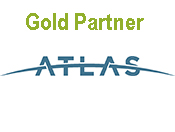|
Bedrock Geology of Southern New England
Tuesday, June 14, 2022, 10:00 AM - 2:15 PM EDT
Category: Course - Live Webinar
LSPA Continuing Education Webinar:
Bedrock Geology of Southern New England
When: Tuesday, June 14, 2022
Time: 10:00 AM - 2:15 PM EST (Please note: registration closes 15 minutes prior to the start of the webinar.)
Live Webinar via Zoom
Registration: In your LSPA registration confirmation email, you will receive a link to a Zoom Registration for this topic. Registration for LSPA webinars requires a two-step process. 1) Complete the LSPA registration, and 2) In your LSPA confirmation email, you will receive a link to a Zoom "Webinar Registration". You must also complete this registration in order to receive the webinar link, and reminder emails with course materials.
Cost: Members $200 | Non-members $350
Instructor: Michael A. Penzo, LSP, PG, CPG, President, Penzo Consulting (Instructor Biography)
Available Credits:
4.0 Technical LSP Credits (#1768)
4.0 CT LEP Credits (#CTLEP-563 W)
4.0 NY PE Credits (#20228679)
4.0 NY PG Credits (#20228679)
*To ensure you receive continuing education credit for your attendance in this webinar, please read the LSPA's guidelines here.
Course Description:
Southern New England is underlain by bedrock formations in three distinct groups: igneous rocks, sedimentary rocks, and metamorphic rocks. Igneous rocks are formed by cooling from a melt of magma beneath the surface or lava above the surface. Metamorphic rocks are created from solid-state transformation of another type of rock (protolith). Sedimentary rocks are formed from the process of erosion and deposition turning rocks into sediments. This course will present a description of the formation of these three types of bedrock, a discussion of the rock cycle, and how each of the rock types are classified. The course will describe how plate tectonics formed the geologic terranes in Southern New England and what types of rocks would be found in each terrane.
For each type of rock, various topics will be discussed including transmissibility, hydraulic conductivity and storativity. There will also be a discussion of how liquid contaminants and groundwater flow are retarded and, in some cases, naturally remediated through each rock type. This discussion will be followed by a series of case studies related to how each rock type impacts groundwater and contaminant flow.
To view course agenda, click here.
|

 Prev Month
Prev Month View Month
View Month Search
Search Go to Month
Go to Month Next Month
Next Month Export Event
Export Event 































